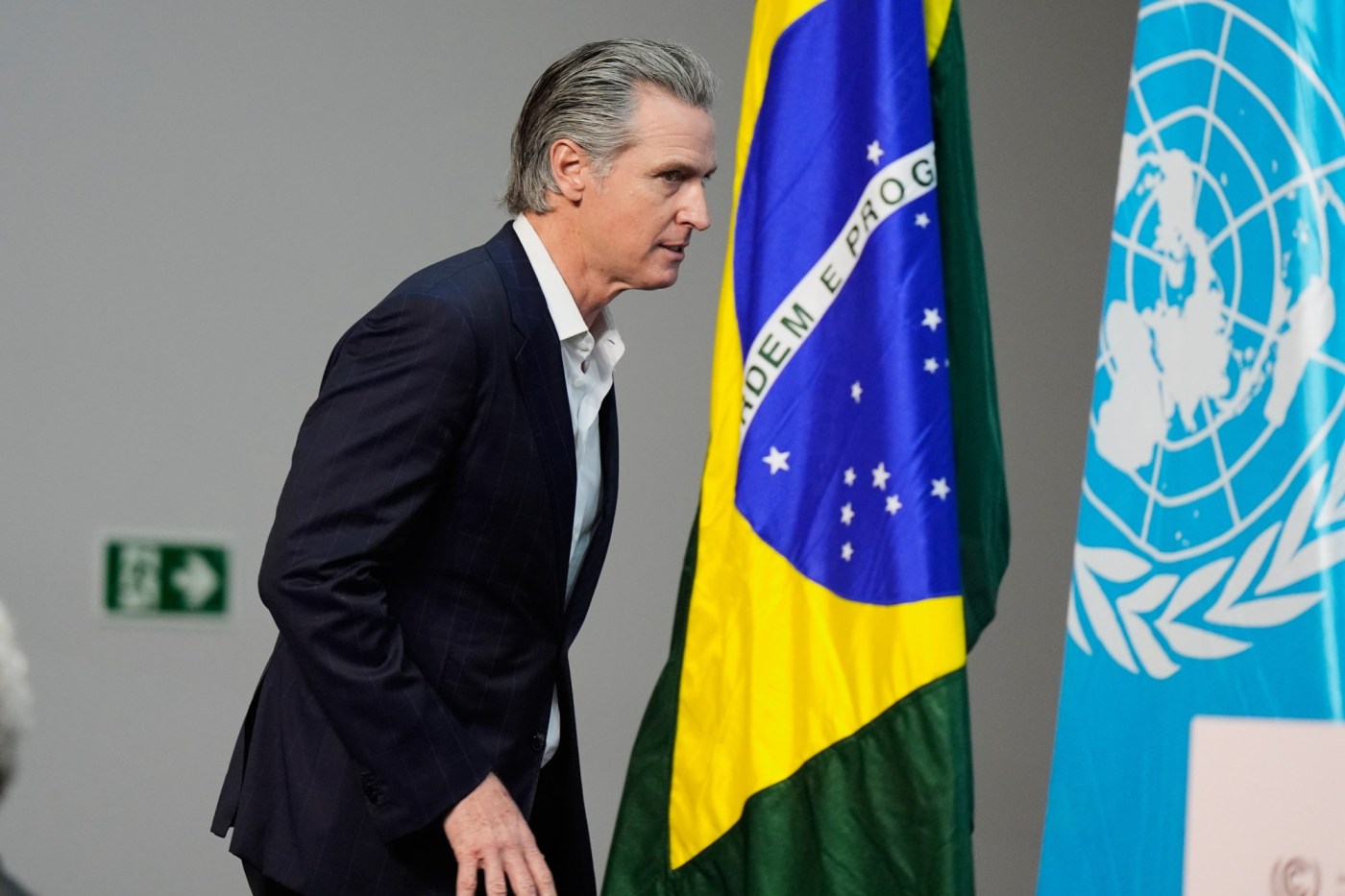California Governor Gavin Newsom recently traveled to Brazil for a United Nations climate conference, aiming to strengthen international partnerships on climate issues. This trip comes as he positions himself as a prominent voice against the policies of former President Donald Trump, particularly in relation to climate change. Newsom’s initiatives in Brazil, which included signing several agreements with South American nations, reflect his ambition for a potential presidential run.
During his weeklong visit, Newsom signed a memorandum of understanding with Chile to enhance information sharing on methane production and a declaration of intent with Brazil focused on biodiversity. He also engaged with Nigeria on “sustainable urban transportation” among other goals. While these agreements are intended to bolster California’s image as a global climate leader, critics argue they lack binding commitments and significant practical outcomes.
Political Posturing in the Face of Rising Energy Prices
The timing of Newsom’s trip has drawn scrutiny, especially given the challenges facing California residents. The state is experiencing some of the highest energy prices in the United States, with gasoline prices significantly impacted by state climate policies that restrict fuel formulations and limit imports from other states. According to the Pacific Research Institute, California households may incur costs between $17,398 and $20,182 for transitioning to alternative energy sources between 2025 and 2050.
Newsom’s critics, including a spokesperson from the White House, have pointed out the disconnect between his international climate ambitions and the economic realities for Californians. The spokesperson criticized Newsom for promoting initiatives abroad while residents face soaring electricity rates and high gas prices, which are among the highest in the nation. California’s energy grid is reportedly struggling to keep pace with demand, particularly due to the increased energy consumption from emerging technologies like artificial intelligence.
California’s Climate Strategy Under Scrutiny
Governor Newsom’s climate agenda has also faced significant challenges domestically. His administration has been criticized for its approach to fossil fuel industries, leading to a decline in oil refinery investments in the state. The reluctance of refineries to expand operations in California stems from policies aimed at phasing out fossil fuels.
Despite Newsom’s efforts to portray California as a leader in climate action, the financial burden of these policies raises concerns about their sustainability and effectiveness. The state’s climate initiatives are projected to cost approximately $50 billion, a considerable expense that many argue does not yield commensurate benefits for the average Californian.
As Newsom continues to leverage his international engagements to bolster his political profile, the ongoing debate over California’s climate policies and their economic implications remains a significant point of contention. The contrast between his global ambitions and local realities may shape how his policies are received as he potentially prepares for a future presidential campaign.
